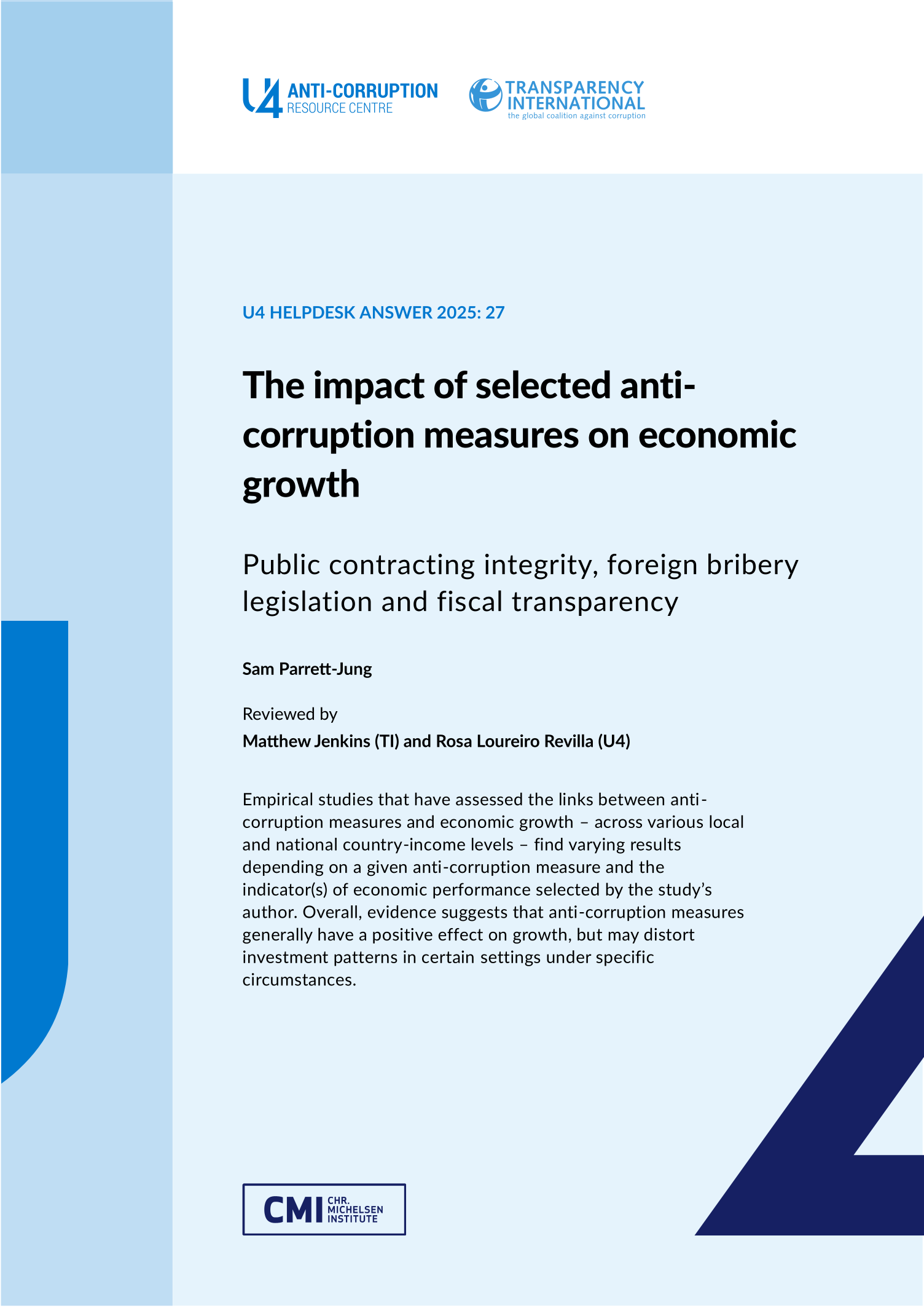Main points
- Evidence shows that the selected anti-corruption reforms can boost economic growth, but this success is largely dependent on institutional quality.
- The economic benefits of anti-corruption measures often only become apparent over a longer timeframe. Immediate impacts are rare and often negligible.
- Open contracting and competitive procurement can contribute to increased GDP and per capita income, cost savings, and improved firm performance. Effects are strong across all country income levels.
- The enforcement of measures to counter foreign bribery (via e.g., FCPA, UKBA, OECD Convention) deters investment into high-corruption economies and drives growth through improved firm performance and institutional quality. Studies highlight reductions in foreign direct investment to and capital expenditure in corruption-prone jurisdictions, with more pronounced economic impacts in high and low-income countries and mixed effects in middle-income countries.
- Fiscal transparency can drive economic growth by stimulating increased foreign direct investment, improved debt sustainability and better government spending particularly in higher income and well-governed contexts. Results vary in low and middle-income countries based on institutional quality.
- Methods that empirically assess the impact of anti-corruption measures on economic growth vary greatly across the literature, ranging from panel regressions and correlational models to causal models like difference-in-differences and synthetic control.

